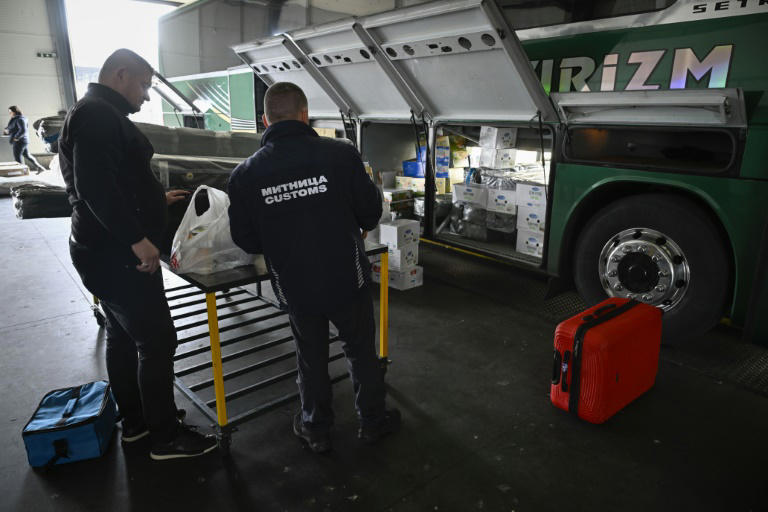Georgi Gospodinov, a Bulgarian customs officer stationed at the Kapitan Andreevo border post, far from the sea, is vigilant for dinghies. Despite being over 150 kilometers from the nearest coastline and thousands of kilometers from the English Channel, Gospodinov and his team have made significant strides in preventing undocumented migrants from reaching Britain via small boats.
Over the past year, Bulgarian customs officers at Kapitan Andreevo have intercepted 52 motors, 49 rubber boats, 755 hand pumps, and 110 life jackets, primarily on Turkish trucks bound for western Europe. This concerted effort came in response to British authorities’ request for assistance in curbing the influx of small boats into the European Union.
Collaborating with British authorities, Bulgarian customs officers targeted the importation of small inflatable boats, motors, and life jackets destined for the French coast, where many Channel crossings originate. By demonstrating that these boats were later used by smugglers for Channel crossings, the EU imposed restrictions on their imports.
At Kapitan Andreevo, customs officers, aided by sniffer dogs trained to detect rubber, meticulously inspect westbound trucks, identifying suspicious items such as the distinctively shaped boat engines and carefully concealed dinghies. British assistance, including funding for personnel training and surveillance equipment, has bolstered these efforts.
British Foreign Secretary David Cameron underscored the importance of collaboration with Bulgaria in combatting the “illegal… terrible trade in human beings,” emphasizing the loss of lives associated with such perilous journeys. However, despite intensified efforts, the number of migrants attempting Channel crossings continues to rise, posing political challenges for the UK government.
In the first quarter of 2024, British officials processed over 5,000 migrants who landed on southern English shores via small vessels, marking a significant increase from previous years. Despite agreements with European countries like Albania to reduce arrivals, smuggling networks remain resilient, continually adapting to enforcement measures.
While increased barriers and police presence may deter some migrants, they also heighten risks as smugglers innovate to evade detection. Ultimately, addressing the root causes of migration and enhancing international cooperation are essential for long-term solutions to this complex issue.






